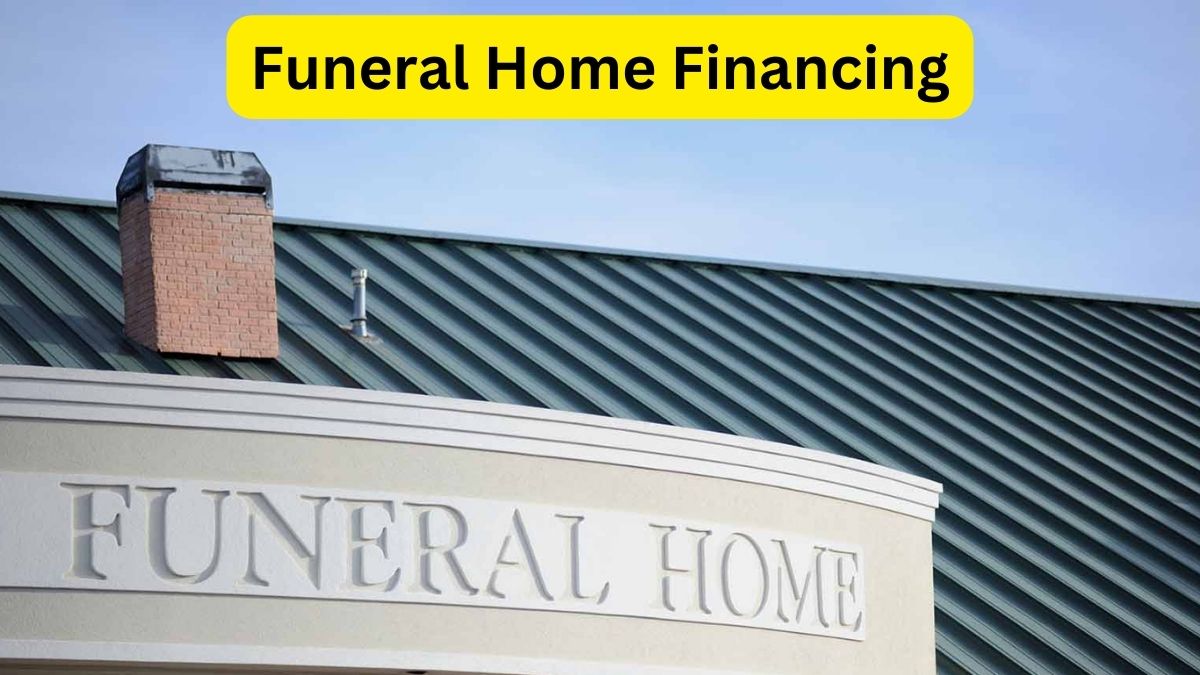When it comes to managing the financial aspects of a funeral home, having a solid understanding of funeral home financing is crucial. This sector often involves substantial investments and complex financial decisions, making it imperative for funeral home owners and managers to navigate these waters with confidence. This article aims to provide an in-depth overview of funeral home financing, covering various aspects including funding options, financial planning, and strategic management.
Understanding Funeral Home Financing
Funeral home financing refers to the methods and strategies employed to manage the costs associated with running a funeral home. This includes everything from purchasing property and equipment to managing operational expenses and funding growth initiatives. Given the unique nature of the funeral service industry, financing solutions must be tailored to meet specific needs.
Key Financing Options for Funeral Homes
- Traditional Bank LoansTraditional bank loans are a common financing option for funeral homes. These loans typically offer lower interest rates compared to other types of financing. However, obtaining a traditional bank loan requires a thorough application process, including a detailed business plan, financial statements, and sometimes collateral. Banks are more likely to approve loans for established funeral homes with a strong financial track record.
- SBA LoansSmall Business Administration (SBA) loans are another viable option. These loans are partially guaranteed by the government, which reduces the risk for lenders and often results in more favorable terms for borrowers. SBA loans can be used for various purposes, including purchasing equipment, expanding facilities, or refinancing existing debt. The application process is rigorous, but the benefits often outweigh the challenges.
- Commercial Real Estate LoansFor funeral homes looking to purchase or renovate property, commercial real estate loans are essential. These loans are specifically designed for real estate transactions and typically require a substantial down payment. Lenders will assess the property’s value, the borrower’s creditworthiness, and the potential for revenue generation.
- Equipment FinancingEquipment financing allows funeral homes to acquire necessary equipment without upfront costs. This type of financing is often used for purchasing funeral vehicles, embalming equipment, or other essential tools. Equipment financing can be structured as a lease or a loan, depending on the needs and preferences of the funeral home.
- Lines of CreditLines of credit offer flexible financing options for managing cash flow. They allow funeral home owners to borrow funds up to a specified limit and repay them as needed. This can be particularly useful for covering short-term expenses or managing unexpected costs.
- Vendor FinancingVendor financing is a type of financing provided directly by suppliers or vendors. It often involves deferred payment terms or installment plans for purchasing goods or services. This can be a practical solution for acquiring equipment or services without immediate financial strain.
Financial Planning for Funeral Homes
Effective financial planning is crucial for the long-term success of a funeral home. This involves creating detailed budgets, forecasting revenue and expenses, and implementing strategies to manage cash flow. Key elements of financial planning include:
- Budgeting: Developing a comprehensive budget helps in tracking expenses and ensuring that financial resources are allocated efficiently. It also assists in identifying areas where cost-saving measures can be implemented.
- Cash Flow Management: Proper cash flow management ensures that the funeral home can meet its financial obligations and invest in growth opportunities. This includes monitoring accounts receivable and payable, as well as managing short-term and long-term liquidity.
- Financial Analysis: Regular financial analysis helps in evaluating the performance of the funeral home. Key metrics such as profit margins, return on investment (ROI), and debt-to-equity ratio provide insights into financial health and areas for improvement.
- Strategic Planning: Strategic financial planning involves setting long-term goals and developing strategies to achieve them. This may include expanding services, upgrading facilities, or investing in marketing efforts.
Challenges in Funeral Home Financing
While there are various financing options available, funeral homes often face unique challenges:
- Industry-Specific Risks: The funeral service industry is subject to regulatory changes, economic fluctuations, and shifting consumer preferences. These factors can impact financial stability and require adaptable financing solutions.
- High Initial Costs: Establishing or expanding a funeral home can involve significant initial costs. Securing adequate financing to cover these expenses while maintaining financial stability can be challenging.
- Cash Flow Variability: Funeral homes may experience fluctuations in revenue due to seasonal variations or changes in demand. Managing cash flow during periods of low revenue requires careful planning and financial discipline.
Best Practices for Managing Funeral Home Finances
To ensure effective management of funeral home finances, consider implementing the following best practices:
- Diversify Revenue Streams: Expanding service offerings or exploring additional revenue streams can help stabilize income and reduce dependence on a single source of revenue.
- Maintain Accurate Records: Keeping detailed and accurate financial records is essential for tracking performance and complying with regulations. This also aids in making informed financial decisions.
- Regularly Review Financial Statements: Regular reviews of financial statements and performance metrics help identify trends, assess financial health, and make necessary adjustments.
- Seek Professional Advice: Consulting with financial advisors or accountants who specialize in the funeral service industry can provide valuable insights and guidance on managing finances effectively.
In conclusion, funeral home financing involves a range of strategies and options tailored to the unique needs of the industry. By understanding available financing options, engaging in thorough financial planning, and addressing industry-specific challenges, funeral home owners can navigate financial decisions effectively and ensure the long-term success of their business.
